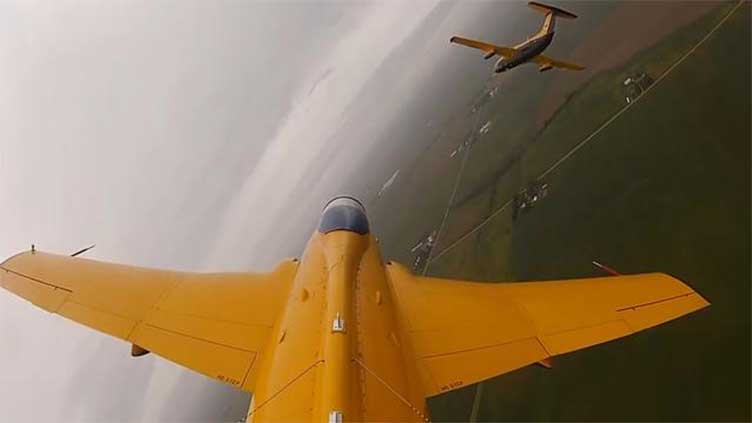AI-piloted military jet successfully intercepts enemy fighter in combat test

Technology
The AI pilot exceeded all expectations, and was able to control the jet effortlessly
(Web Desk) - In partnership with the University of Iowa, Lockheed Martin’s Skunk Works has demonstrated the use of artificial intelligence (AI) in air-to-air intercept scenarios.
The AI took the lead in flying a jet through a series of tactical exercises, during which it directly flew a full-scale Aero L-29 Delfín jet.
While in command, the AI controlled the jet’s heading, speed, and altitude.
The Aero L-29 Delfín (meaning “Dolphin”) is a military jet trainer developed and manufactured by Aero Vodochody, a Czechoslovakian aviation manufacturer.
It is the country’s first locally designed and constructed jet aircraft.
Skunk Works and the University of Iowa’s Operator Performance Laboratory (OPL) also tested the AI in combat situations against a “virtual adversary.” This included a series of offensive and defensive scenarios.
Eight test cases were performed for each flight to test the AI pilot in different scenarios such as standard head-to-head fights, off-aspect encounters, missile support, and missile defeat situations.
According to Lockheed Martin, the team was pleased to observe a “smooth transition of learned behaviors” from simulation to the real world. They also noticed that the AI agent acted “purposefully and decisively.”
“This was the first live exercise of the new flight interface; it’s thrilling to see the separate components successfully integrate on the L-29 to demonstrate new capabilities.
The complete system performed even better in live flight than in simulation,” said Dr. Tom “Mach” Schnell, OPL professor at Iowa Technology Institute.
“Live flight tests are a crucial aspect of advancing our expertise in AI and autonomy. These flights are powerful demonstrations of our ability to quickly and affordably develop and test operationally relevant AI capabilities,” said Matthew “Gabe” Beard, Lockheed Martin Skunk Works autonomy/AI and machine learning engineering manager.
The ongoing flight tests form part of a larger effort to quickly develop and evaluate AI-driven autonomy for air-to-air missions. Additional flight tests are scheduled for this year.
This news comes only a few months after The United States Air Force successfully pitted an AI-piloted F-16 against a flesh-and-blood pilot. Called the X-62, the aircraft had a human “failsafe” pilot in the cockpit but was otherwise entirely AI-controlled. The AI pilot actually came out the victor, albeit by breaking the rules a little.
It also follows previous tests by Skunk Works and OPL on a pair of L-29 Delfin jets by in September. During those tests, the aircraft worked in tandom to perform jamming support in a simulated air-to-ground mission
Lockheed Martin explains that future tests will build on these accomplishments by incorporating more aircraft into offensive counter-air and battle management scenarios, thereby increasing the complexity.


